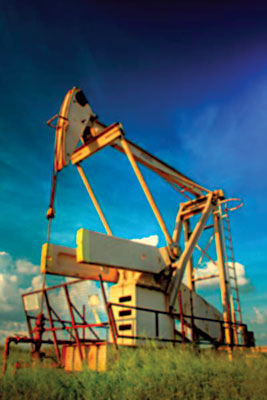All Nonfiction
- Bullying
- Books
- Academic
- Author Interviews
- Celebrity interviews
- College Articles
- College Essays
- Educator of the Year
- Heroes
- Interviews
- Memoir
- Personal Experience
- Sports
- Travel & Culture
All Opinions
- Bullying
- Current Events / Politics
- Discrimination
- Drugs / Alcohol / Smoking
- Entertainment / Celebrities
- Environment
- Love / Relationships
- Movies / Music / TV
- Pop Culture / Trends
- School / College
- Social Issues / Civics
- Spirituality / Religion
- Sports / Hobbies
All Hot Topics
- Bullying
- Community Service
- Environment
- Health
- Letters to the Editor
- Pride & Prejudice
- What Matters
- Back
Summer Guide
- Program Links
- Program Reviews
- Back
College Guide
- College Links
- College Reviews
- College Essays
- College Articles
- Back
How We Americans Can Help Nigeria and Other Rentier States
According to many metrics, Nigeria has a lot of potential. It is rich in natural resources, particularly oil; it exports the 8th most oil, controlling 4% of the world’s supplies and bringing in oil revenues of $27 billion in 2016. It’s also the largest economy in Africa. By sheer volume of people, Nigeria is ahead too-- it has the largest population of Africa. Its cities are economic ports of Africa and its universally spoken language is English, the language of money and tourism.
Yet, it is struggling.
Environmental disasters caused by negligence surrounding the oil industry are rampant. A UNDP report states that there have been a total of 6,817 oil spills between 1976 and 2001, which account for a loss of three million barrels of oil, of which more than 70% was not recovered. As a result, thousands, or even hundreds of thousands of Nigerians are endangered by their water supply and soil’s high level of hydrocarbon pollution. In addition, entire areas of wildlife are being spoiled, especially in the Niger delta region. This simultaneously threatens endangered species’ populations and the tourist industry, which distributes income more equitably than the oil industry.
Inequality is ludicrously high. The combined wealth of Nigeria’s five richest men is $29.9 billion. This is enough capital to end extreme poverty on a national level, yet five million Nigerians face starvation and 112 million Nigerians live under the global poverty line. Compare this with the fact that the richest Nigerian would have to spend $1 million per day to exhaust his fortune. How did this happen?
According to Oxfam, between 1960 and 2005, about $20 trillion (with a T!) was stolen from the treasury by public office holders. This amount is larger than the GDP of United States in 2012 (about $18 trillion).
Poverty and inequality in Nigeria are not due to a lack of resources, but to the ill-use, misallocation and misappropriation of such resources. At the root is a culture of corruption combined with a political elite out of touch with the daily struggles of average Nigerians. When the wealth of a nation is strongly pooled in the hands of few, as in Nigeria, not only is the well-being of the majority of the population lowered, but also economic performance is linked to economic equality, a claim supported by the OECD, World Bank, and IMF.
Whose fault is it?
One wants to blame the government for cronyism, greediness, and inefficiency. But the politicians are a result of a history of British colonialism in which Nigerians connected to the English were rewarded with money and status. The country is autonomous, but this acceptance of corruption and nepotism to a greater, outside force has remained. In Britain’s void rose the oil companies.
The oil companies function in prime capitalist fashion. Their primary goal is to maximize profits, both for themselves and their shareholders, at any cost. That includes environmental degradation, exploitation of human life and livelihood, illegal behavior, and intrusion in foreign governments. They pay off members of the Nigerian government because it is effective; in response for the money given, they will receive favors—access to oil-rich regions, lenient legislation, which will in turn increase profits. The moral obligation to the community will be ignored if unethical behavior cuts costs, regardless.
With one exception.
We are American consumers. The majority of us need and use oil and are wealthy enough to purchase cars which consume large amounts of it. So Shell, Mobil, Chevron, and Texaco, all who drill in Nigeria, need to stay in our favor. They spend millions of dollars on marketing to appeal to us, to build brand allegiance, and their biggest fear is we see them as a dirty company.
That’s why BP spent $61,600,000,000 cleaning up the Gulf oil spill and ran entire advertising campaigns in apology. That’s also why Shell rarely bothers to clean up its oil spills in Nigeria and certainly never has apologized.
Companies will change business practices if consumers demand it.
If we Americans threaten to stop using oil from the companies which despoil Nigeria and other developing countries, if we demand their cleaner business practices, environmental action, and government interactions, they would likely change. Because unfortunately, the threat of less business from a few of us is more powerful than the demands for equity coming from most of the 182 million Nigerians.
So let’s investigate the business practices of these countries and stop filling up our cars with Shell, or Chevron, until they meet our demands to reform. Yes, it will be a slight inconvenience on the highway, and will require the actions of a large group of people, but it is worth it for the humanitarian crises which will be prevented, and the benefit to the average citizens of many developing countries.

Similar Articles
JOIN THE DISCUSSION
This article has 0 comments.
